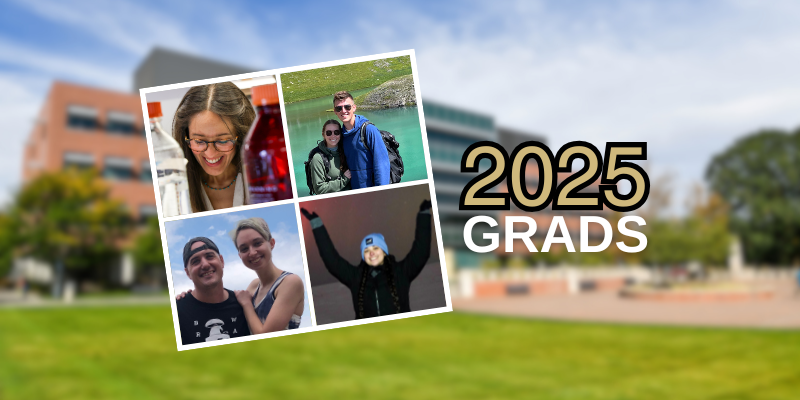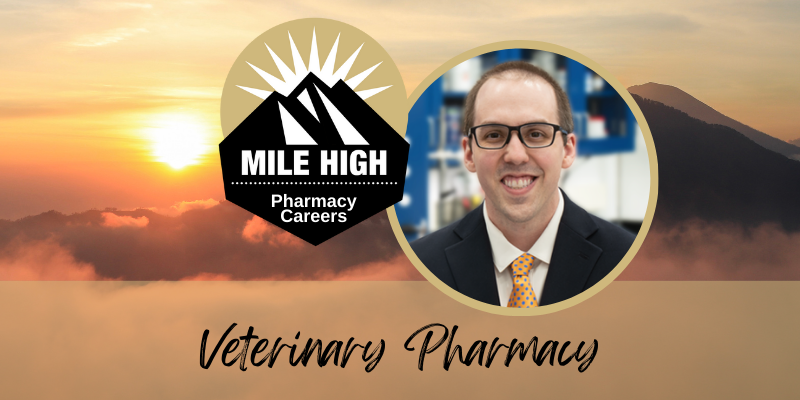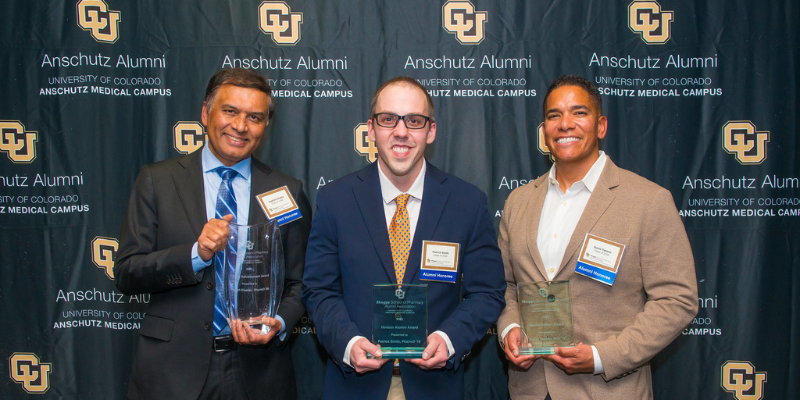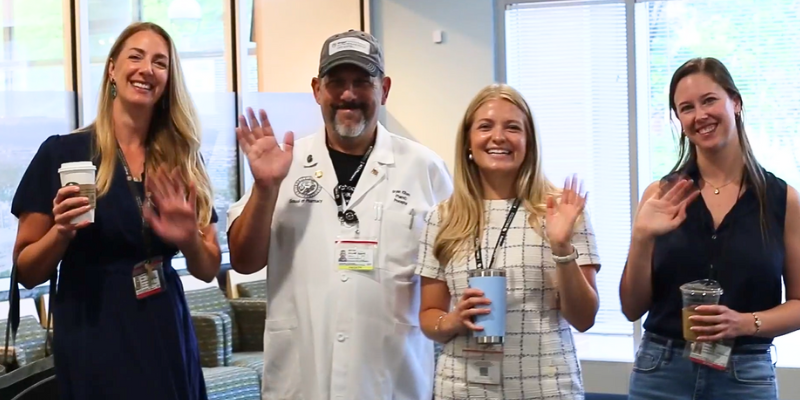Four years ago, when the Class of 2025 walked through the doors at Skaggs School of Pharmacy and Pharmaceutical Sciences, we called them the go-getters. The ones who did not let a pandemic derail their plans. The ones who arrived ready to be flexible, to do what it takes, and to thrive. We weren't wrong.
Discovering Her Passion

Kyla Jantz arrived ready to dive in. A self-described introvert, she found herself very involved once she got to pharmacy school. Throughout her time at CU Pharmacy, she received multiple scholarships, awards, student leadership recognitions, and even helped to bring the annual Fall Ball, once a CU Pharmacy student staple, back to life.
Jantz took every opportunity to thrive. When Dr. Gina Moore recommend Jantz for a trip to Washington, DC, to advocate for PBM reform and pharmacist provider status, she hopped a plane and joined students from all over the country to meet with United States legislators. Jantz explained the roles pharmacists play in healthcare and why pharmacists are frontline providers.
Jantz didn’t always plan on pharmacy as her career.
“My junior year in high school, I went on a medical mission trip to Belize,” she said. “And I found that I really liked being at the station that gave out the medications at the end, explaining to people what they were for, what they could expect. When I got back, I looked into pharmacy.”
Jantz’s last rotation at UC Health Hospital had the most impact on her future career trajectory.
“I was in an oncology rotation, and I think that is something I want to look into. All of oncology is fascinating,” she said. “The best thing about pharmacy is that you can explore new interests.”
After graduation, Jantz is headed to Connecticut to a PGY1 residency – and hopes to eventually go into a PGY2 specializing in oncology. For right now, she is excited to be done with school so she can revisit some interests, such as reading, rock climbing, rappelling, and spending time outside. Some habits picked up in Colorado might not ever go away.
Building His Community

Batton Acree knows Colorado. The Grand Junction native is a CU Boulder alumnus, intern at Sam’s Club Pharmacy, and current wildland firefighter for Mesa County Sheriff 's Office – something he referred to as his “summer job” during college, which he continues to do today when he isn’t finishing his pharmacy degree or working at Sam’s Club. Four years ago, he joined the first cohort of remote PharmD students at CU Pharmacy.
“I knew CU’s level of education, and I expected this program to be exactly what I needed,” he said of joining the pilot remote PharmD pathway. “My wife’s job is here [Grand Junction], my family is here, and I’m really only four hours from Denver so anytime I needed to be on campus, I could do that.”
Acree has a passion for building relationships with his patients. He enjoys building trust in his community and takes the time to do patient education.
“Grand Junction is a smaller town, so I see many of my patients frequently, and I enjoy getting to spend that time with them, helping them understand their health,” he said. As in most small towns, his patients also know him, and if not him, they know his parents, his childhood best friend, or know of his family. And his family is his support system.
“My wife, my parents have been awesome,” he said. As a remote student, Acree attended classes delivered in real time via video conferencing technology. He was placed into a cohort alongside on-campus students to foster relationships with his peers, and twice a semester, he traveled to Denver for hands-on lab work and training. He was able to do most of his rotations in rural hospitals, which varied from 12 to 320 beds. The drastic change in sizes allowed him to experience different models and methods of care, but he had one constant.
“Even in hospitals here, I really enjoy being able to interact with who I am treating,” he said. In his spare time (between pharmacy and fighting fires, that is) he is a true outdoor-loving Coloradan.
“I like to ski, I like to hike, I just like being outside,” he said. After graduation, he will continue to do what he enjoys most – patient education and building relationships as a community pharmacist at Sam’s.
Expanding Her Field

Topanga Aradanas explores Iceland during a break from Pharmacy school.
Topanga Aradanas is also here to build community. The president of Phil Lambda Sigma (PLS), the pharmacy leadership society, Aradanas has spent the last four years reaching communities who have been historically underserved. She’s also the only P4 to be an active student organization president through her rotations.
“I would not have been able to do that without my peers on the board,” she said.
Under Aradanas, PLS intentionally changed its bylaws to be more inclusive and recruited students to represent varied backgrounds, all so more voices can be heard, more leaders can be developed, and future pharmacists can have experience providing patient-centered care. For their efforts, PLS was given a national leadership award.
“I’m very, very proud of all of the things we were able to do, and I’m very, very proud to be a leader of leaders,” she said.
Aradanas mission to bring all voices to the table stems from her own experience. Growing up, her family was in the military, and she moved a lot. She saw and experienced different cultures, communities, and ways of life. All are important, all are valued, and all need to be considered in healthcare.
Originally, Aradanas wanted to go to medical school and specialize in anesthesiology. In her senior year of high school, her grandmother got sick, and Aradanas had questions about her medications.
“Our house quickly became a pharmacy, and I would ask ‘why is she on all these medications? Why this dose? Are these actually healthy?’” she explained. She found the field of pharmacy more patient facing than others and decided to change her goals. She choose CU Pharmacy because her family moved to Denver – and she fell in love with the CU Pharmacy faculty.
“They are more like family, than mentors, and even at a graduate level you feel like you can depend on them,” she said. “I’ve had some amazing connections through my years in this program.”
A Lifelong Learner

Anna G. Figueroa made a faculty connection that led to a breakthrough in epilepsy research, and to Figueroa staying at CU post-PharmD graduation to finish her PhD in Pharmaceutical Sciences.
“I am a non-traditional student,” Figueroa explained, “I started my undergraduate degree later, and I was looking into pursuing an MD. To make myself more of a competitive candidate I got a summer research fellowship in macular degeneration... from there I felt my calling in life to do translational research. I became curious about medication that might help someone with this disease, and I started to shift my interests to pharmacy school.”
As she tells it, at first the plan was a PharmD with a research project. Figueroa immediately started research during her PharmD program at CU, and met Manisha Patel, PhD, Associate Dean for Research and Graduate Studies, who welcomed Figueroa to her lab with open arms. Soon, her plan changed to include a PhD as well.
“The work that I have been doing has been on energy metabolism,” Figueroa explained. “I have been trying to identify if there are defects in specific cells in children who have a severe form of epilepsy called Dravet Syndrome.”
She wants to try to understand if there is a connection between energy metabolism and neuronal excitability in these children and plans to write her PhD thesis on this work. Figueroa is off to a great start. In March of this year, she was first author on a paper published in Epilepsia with Dr. Patel. Their first of its kind study positively identified metabolic defects in patients with Dravet Syndrome, paving the way for future new treatment options for children with the disease.
Her goal, once all her education is complete, is to have her own lab at a research institution and to be able to mentor students such as herself.
“I think that is what drives me,” she said. “The ability to add more sentences of new knowledge in this world.”
Her best advice for future students?
“It’s going to be a challenge, but don't be scared or frightened of the challenge,” she said. “It is absolutely doable if you’re passionate about finding answers to the unknown. Be a curious person. You’re leading the path forward... It is worth it in the end.”



